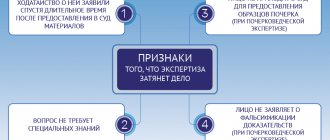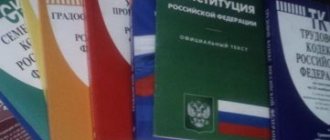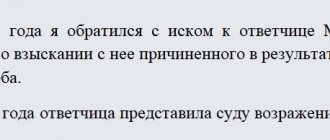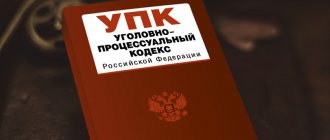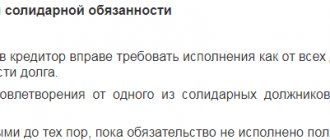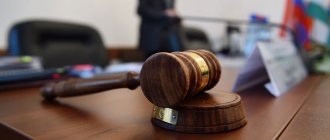The court appoints an expert examination in almost all types of legal proceedings. The expert who will conduct the research is also determined by the judicial authorities. Therefore, the plaintiff and the accused cannot in any way influence the result of the forensic examination. However, if the conclusions of a forensic expert seem biased, incompetent or false to the parties, they have the right to challenge the results of the examination.
If you are going to challenge the result of a forensic examination in court, contact a lawyer. It will identify procedural violations. He will also choose a method to challenge the examination, file a petition and bring the procedure to its logical and correct conclusion.
Finding an expert lawyer is quite easy. Labor exchanges, offers from private specialists on the Internet, searching the old fashioned way (ads in the newspaper, friends) - all this works, but does not always give the desired result. What is good forensic science? An independent (read: unbiased), high-quality and quick assessment that will help you win your case in court.
When it comes to litigation, there is usually no time for a long and thoughtful search. The result is needed here and now. Private specialists do not always have the proper qualifications. Therefore, you need an experienced expert who will do everything clearly and quickly.
Such specialists offer their services on the R.TIGER marketplace. We only have verified law firms and real client reviews. In addition, you save significant time: searching for an expert and filling out an application as a whole will take no more than an hour, whereas studying all the proposals for examination on the Internet and their further verification can take a whole day. And not all online experts guarantee results. Our service provides such a guarantee - payment occurs only after the service is completed. Don’t waste precious time, fill out an application and hire an experienced lawyer to conduct a forensic examination through R.TIGER.
An example of an objection to an examination
Objection to examination
The Andreapolsky District Court of the Tver Region is processing civil case No. 6-351/2022 on the claim of Kira Aleksandrovna Polishchuk against Ivan Efimovich Burundukov to recognize the purchase and sale agreement for a motor vehicle as not concluded. As part of the case and on the basis of a court ruling, a handwriting examination was carried out.
Expert institution - Business Assessment LLC, Andreapol, st.
Svetlaya, 14, office.
51.
On April 21, 2022, the court received the conclusion of a handwriting examination. From the conclusion: the signature in the relevant columns of the purchase and sale agreement, the preliminary agreement and the receipt for receipt of funds was not made by the plaintiff, but by another person.
I do not agree with the conclusion presented based on the results of the examination. I believe this evidence is unacceptable and cannot be taken into account when making a court decision in the civil case under consideration.
Effective handwriting examination is impossible without high-quality preparation of materials for the expert. In accordance with the petition to involve a specialist, 10 free samples of the plaintiff’s signature were obtained at the court hearing.
As well as shareware and experimental samples. An additional 5 documents containing free samples of the plaintiff’s signature and handwriting were also attached to the determination on the appointment of the examination.
In violation of the established procedure for conducting the examination, comparison of the signature on behalf of Polishchuk K.A. was produced with only 2 (two) free samples out of 10 (ten); there was no comparison of the signature under study with the attached documents containing free samples of the plaintiff’s signature, as well as with conditionally free and experimental samples of her signature.
The expert’s conclusion is based on a study of not all of the case materials provided, which is a violation of the principle of objectivity and comprehensiveness; therefore, the expert’s conclusion is unacceptable evidence and cannot be assessed by the court as evidence in the case.
Based on the above, guided by art. 35, 86 Code of Civil Procedure of the Russian Federation,
- Attach these objections for examination to the materials of civil case No. 6-351/2022.
- Consider the expert's conclusion dated April 21, 2022 unreliable and unacceptable.
- Notification of sending a copy of the petition to the participants in the case
04/28/2022 Burundukov I.E.
Points of interest
The use of such a document as an objection to a petition is not always determined by simple points. In order to achieve satisfaction of the complaint, it is worth choosing the right arguments.
The court cannot refuse to conduct an examination solely on the basis of an objection from the other party - the defendant or the plaintiff. It is worth choosing the most appropriate fact structure. Based on this, you can hope for a good result.
The document itself has its own characteristics both in appearance and content. This point is worth observing. Despite the fact that there is no such form of objection in the law. And therefore you can draw up a document in a free manner.
Maintaining a formal business style will come in handy. Plus, you should resort to copying entire wordings. They will allow you not to deviate from the legal regulation of all points.
Procedure for challenging
The entire procedure of this nature consists of several steps. They are done in this order:
- Drawing up an objection document.
- Formation of a supporting base - you can attach documents that support what is stated in the objection.
- Submitting a package of documents to the court. They use transmission during the meeting, through the office or by e-mail.
This algorithm is sufficient to carry out the standard procedure. Procedurally, this procedure is fixed in legislative acts. And for the initial processing of information, you can use the articles of the procedural code.
Features of compilation
The objection to a petition for an expert examination in a civil case has a certain structure. It should be observed and the following components should be included in the document:
| Details | This part of the document contains information about:
|
| Name | It's worth pointing out that this is an objection. Next they write to what account - for a petition to appoint an examination |
| Main part | It contains information about the case and under what conditions the petition was drawn up. Next, they post the legislative provisions on which the applicant relies. They also indicate why this objection was drawn up |
| Petition | In this part, all the proposals expressed earlier in the main part are established point by point in an array of text |
| Applications | Typically, an indication of a copy of the petition will be placed here. Since it is necessary to provide a link to the document to which the objection is expressed |
| End positions also exist | In this document they are expressed in writing the full name, affixing a signature and the date of drawing up the paper |
Under what conditions can they refuse?
The court must justify its refusal if it issues one. The most commonly used formulations are:
- insufficient arguments - there are no grounds for refusing the application;
- incorrectly drawn up application document;
- lack of supporting documents;
- exceeding one's rights, delaying proceedings.
These points are worth remembering. It is with these in mind that statements are required to be drawn up. Only then will they be protected from such deviations. And they will have a better chance of getting approval from the court.
But it is worth understanding that a refusal issued without arguments or simply ignoring a document should be challenged. They do this in court, by writing a statement of claim.
What to pay attention to
When drawing up an objection, it is worth attaching confirmation to the document. These are papers that can support the facts stated in the application.
Due to this, an evidence base is compiled. Without it, there is little chance that the court will approve the objection.
Studying the issue of a complaint against a motion leads to the fact that the court still has the right to refuse such a request. In this case, it is initially worth understanding whether there are legal grounds.
The second step is to identify opportunities to correct the objection in a way that leads to a positive result. If such factors exist, you can submit the document again.
Another option is an appeal in court. Such a complaint against the judge’s actions may satisfy the party’s request. These actions often lead to a change of judge - due to his bias or incompetence.
The use of various types of documents must be within the law. Opposition to motions is permitted in all types of proceedings. But in any case, this document must have certain parameters.
These are the arguments and information components without which consideration of the paper is impossible. They need to be introduced and, at the same time, their action in relation to the required result must be thought through.
How to file an objection to an examination
The issues of filing applications for examination are regulated by the Code of Civil Procedure of the Russian Federation, in contrast to filing objections to the examination. However, this right directly follows from Art. 35 of the Code of Civil Procedure of the Russian Federation – rights and obligations of persons participating in the case.
The Code of Civil Procedure of the Russian Federation does not concern types of examinations in civil cases, issues of organization and methods of conducting examinations appointed by a court ruling. Certain requirements are contained in the Law “On State Forensic Expert Activities in the Russian Federation” dated May 31, 2001.
N 73-FZ. For example, an expert does not have the right to accept orders to conduct a forensic examination from any bodies or persons directly, only from the head of a forensic institution, and he does not have the right to independently request materials and documents for the examination.
The expert is prohibited from communicating the results of the forensic examination to anyone other than the person who appointed her. There is also a ban on establishing contacts with participants in the process - such behavior can become a compelling argument for bringing objections to the examination.
An objection to the examination is drawn up according to the algorithm of any petition. The name of the court, the parties, the essence of the claim, and the number of the civil case are indicated.
Expert opinion
Egorov Andrey Andreevich
Legal consultant with 10 years of experience. Specializes in family law. More than 3 years of experience in developing legal documentation.
Information about the appointment of an examination in a civil case and the receipt of a conclusion. The following are the arguments according to which the applicant considers the examination conclusion to be inconsistent with the circumstances of the case or carried out in violation of the law.
At the end of the document, you must ask to attach the objection to the examination to the case materials (in order to be able to use its arguments when filing an appeal), put a signature and date of filing. An objection to the examination can be filed at a court hearing or through the court office.
General components
During the trial, each party must prove its position. Simple arguments are not accepted by the court; everything must be justified and supported by evidence.
However, it is not always possible to prove this or that point due to the lack of special skills or knowledge on the part of the parties.
We are talking about examination. It is the expert who has the opportunity to explain many issues, justify what information was legitimate, what information is important, and so on.
But the parties to a legal dispute do not always agree on the need for an examination. Some may believe that through such a procedure the other party is trying to distort reality, delay the process, and so on.
An objection to a petition for the appointment of handwriting, construction, merchandising and other examinations may be filed before its appointment.
All participants in a civil case have the right to file a petition, but the final decision is made by the court.
What it is
An examination is a procedure for clarifying certain facts by a special person who has the appropriate skills, knowledge, equipment, and so on.
That is, in essence, an examination is a procedure for finding out information, provided that it cannot be obtained by the parties to the process.
An expert must have special skills. In their absence, the meaning of his involvement in the process is lost.
Some types of examination require that the expert being hired has a license to carry out certain activities.
A petition is any request; in this case, we are talking about a request to the court to order an examination.
Such a procedure may be necessary only when it is not possible to obtain certain information or analyze it in other ways.
An objection to a motion is a document indicating disagreement with it based on certain facts.
In an objection to the request to order an examination, the party declares that it does not agree with the appointment of such a procedure, considers it unnecessary, unreasonable, and so on.
Purpose of the document
The essence of such a document is as follows:
| Expresses disagreement between a party to the litigation and the position of the other party | On the need to appoint an expert examination within the framework of the case |
| Fixes the position of such a party | Can later serve as evidence in the event of disputes, including used when appealing a court decision |
| Determines why the party does not agree with the need for an expert opinion, contains specific reasons | The reasons must be clear and reasonable, as well as legal. Otherwise the court will not consider them |
In essence, the objection expresses the will of the applicant and his opinion regarding the issue under consideration. In any case, the final decision lies with the court, which involves an expert in the trial.
What the law says
The right of a party to express disagreement with procedural documents, to submit statements and petitions is established by procedural legislation.
For example, if we are talking about a civil case, then such a right is defined by the Civil Procedure Code, if it is about disputes between entrepreneurs, that is, it is considered by arbitration, then we are talking about the Arbitration Procedural Code (APC RF).
A lawyer’s petition in the framework of criminal proceedings is accepted in accordance with the requirements of the Criminal Procedure Code of the Russian Federation.
The Institute of Expertise is regulated by several special legal acts, but the Federal Law “On State Forensic Expert Activities in the Russian Federation” is of particular importance, as well as other legal acts that address indirect issues.
It is also worth paying attention to judicial practice, which will allow you to look at the situation from the other side, analyze it and draw some conclusions.
Arguments when drawing up an objection to the examination
When preparing an objection, the applicant has the right to refer to a particular expert’s lack of the required qualifications to conduct an examination, even if the expert was not challenged.
Often, as a result of an examination, conclusions may not be categorical, but probabilistic. This will also become the basis for bringing objections to the examination. As well as the contradiction of the expert’s conclusions with other evidence available in the case in a civil case.
So, to draw up objections to the examination, the applicant can evaluate:
- compliance with the procedural order of appointment and conduct of examination;
- compliance of the expert opinion with the assignment (court ruling on appointment);
- qualifications and competence of the expert;
- scientific validity of the conclusion;
- completeness of the conclusion;
- compatibility with other evidence in the case.
In addition to filing an objection to the examination, a party has the right to file a petition to appoint an additional examination or a repeat one.
Clarifying questions on the topic
We need to submit an application for examination for disagreement with SOUT
It is quite difficult to refute any examination or appeal an expert’s opinion; this document is almost the most important argument in a trial. Conclusions in the examination are made after various studies by the professional and materials presented by other persons.
Without the necessary knowledge of legislative acts, the defense representative will not be able to refute the conclusion.
Court refusal
It may happen that the court refuses to conduct additional research. In this case, the parties have the opportunity to use the services of an independent expert. They have the right to demand a replacement specialist. This may be relevant, for example, if the expert is an interested person (friend, relative of one of the parties, etc.).
The process of challenging an expert must be prepared very carefully. There should be no inaccuracies in the complaint. This is the only way to achieve the desired result.
Each specific case has its own nuances. Therefore, before filing a complaint, get professional advice from a lawyer in similar cases. They will help you choose the best solutions and draw up the documents correctly. Even the slightest mistakes can determine the outcome of the trial against you. If you consider the forensic medical examination report to be erroneous, take advantage of the opportunity to challenge and protect your interests.
What you can do yourself
The specialist's conclusions are independent. It is only for this reason that the court, which accepts all the grounds in the case, relies on him so confidentially.
It is necessary to file an appeal against the conclusion if you notice obvious errors in the document or, conversely, a lot of information is lost or secretly hidden. Any decision or any specific action of the expert, which aroused doubts on the part of the defense, may be challenged in the court of first instance.
You can challenge the conclusions if:
- the expert does not comply with the norms of the Law “On Forensic Expert Activities in the Russian Federation”, and does not keep the examination decision secret, other persons are involved in the investigation of the facts;
- the current level of qualification of the specialist is not enough to enable him to produce conclusions that will be attached as evidence of the guilt or innocence of the suspect;
- if an expert makes an assumption in his decision, then this cannot be a complete basis for considering the conclusions as an argument;
- during the trial, new facts appear in the case that contradict or do not confirm the expert’s conclusions;
- during the case, the rights of any of the parties were violated, which could lead to an incorrect outcome of the case.
A participant in the trial can fully exercise his rights and fully familiarize himself with the results of the examination. He can ask the specialist questions, and if the decision cannot be reviewed, he must be informed of this. Any person independently and without any connections can file a petition to challenge the conclusion.
It is worth demanding that the examination be carried out a second time - an inspection by a special expert organization.
If new evidence is revealed in court, a participant in the case may ask for the same examination to be carried out again, which will soon make changes to the conclusion, and for a new examination if the case has taken a completely different turn. The two parties to the lawsuit have the right to answer questions and provide explanations when considering the attached opinion.
Sometimes one of the parties conducts its examination with the help of other legal specialists who do not hold the position of experts or court employees. Such a conclusion may not be accepted by the other participants in the process if the examination is not relevant to proving guilt or innocence.
Grounds for challenge
The results of a study can be contested if there are objective grounds for recognizing the examination as inadequate evidence.
According to Art. 87 of the Code of Civil Procedure of the Russian Federation, it is possible for the court to order an additional or repeated examination, with a full statement in determining those points from the previous conclusion with which the court does not agree.
Additional examination is appointed if the expert’s conclusions are not entirely clear or are presented in insufficient volume. In this case, the procedure is performed again by the same expert or his colleague.
When doubts arise about the veracity or validity of research findings. It is possible for the court to order a re-examination to be carried out by another expert specialist.
If the conclusion contains contradictory results of the members of the expert commission, then the procedure is scheduled a second time with the participation of another commission.
If the expert is lying
Unfortunately, experts are also people and they may provide incorrect information in a document.
Under the influence of personal prejudices (for example, material gain, personal interest or close family ties), they can completely change the fate of the two parties to the case.
You need to carefully study all the materials and nuances of the case, and if it is legal, and the essence of the conclusion, in order to be confident in the veracity of the information.
The Code of Administrative Offenses in the Russian Federation provides for punishment for providing false information in court. This is a crime for which the expert is subject to criminal punishment in accordance with the legislation of the Russian Federation.
It is necessary to point out the false testimony of a specialist - these are:
- the conclusions of the decision do not correspond to the real facts;
- neglect of part of the existing material when writing expert conclusions;
- adding false facts to the case;
- obtaining facts by criminal means;
- distortion of the properties of the objects of conclusion.
If specially designated bodies establish that the examination is not truthful, then it can no longer be presented by the expert in the form of the main and reliable argument.
Due to the fact that the duties of a judge’s job do not include checking the reliability and correctness of the conclusion, you should turn to experts who are certified and can legally perform a review.
